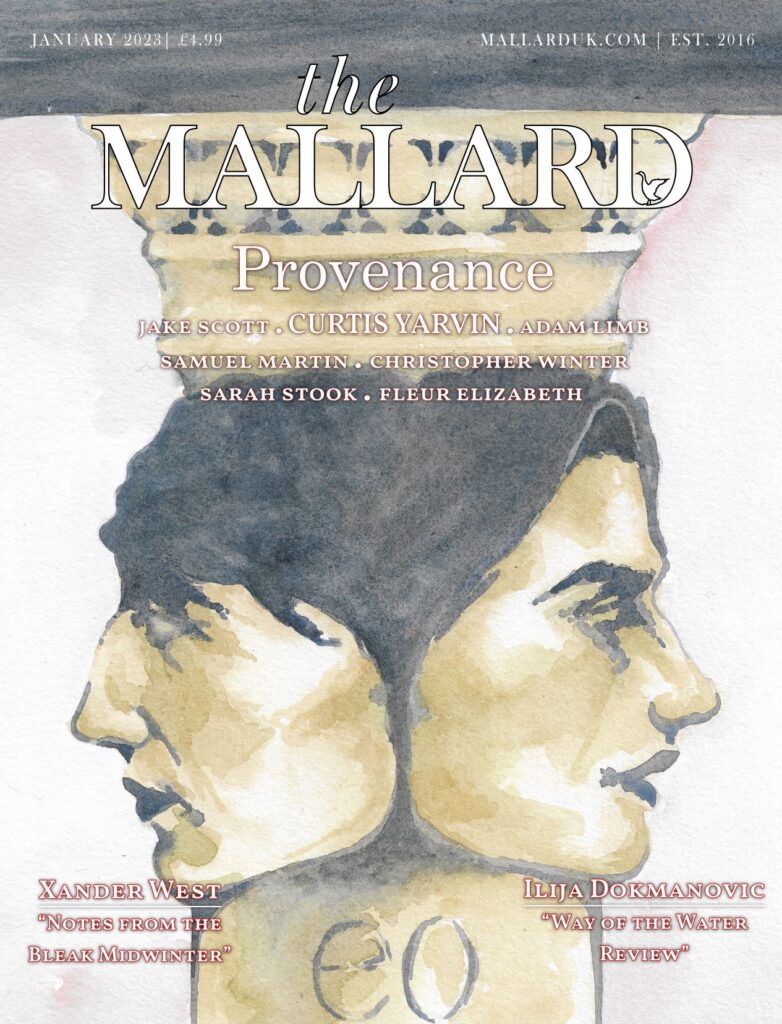The 2022 midterms should have been a bloodbath. It should have been a huge sweep for the Republicans, relegating the Democrats to the depths of minority rule. Instead, the Republicans managed to win the House only respectably, whilst the Dems kept the house. It’s widely believed that better candidates could have kept the house.
Good candidates do exist. Ron DeSantis managed to make gains in Florida. Glenn Youngkin flipped Virginia. Brian Kemp safely won re-election in Georgia. Unfortunately, there were also many poor candidates. A competent Republican could have beaten John Fetterman in Pennsylvania. Somebody else could have beaten Katie Hobbs.
The same is true for Presidential elections. The Republicans have only won one election in the 21st century outright, with both the Electoral College and popular vote – George W. Bush in 2004. 2000 and 2016 both saw Electoral College wins but popular vote losses. Whilst external events came into play, it’s not a great look.
That being said, it almost seems that the Republicans like losing. They’re not making any real attempt at winning. Whilst they might choose decent candidates, there’s a high chance they won’t.

This is an excerpt from “Provenance”. To continue reading, visit The Mallard’s Shopify.
You Might also like
-
In Conversation with Curtis Yarvin III (Political Testosterone and BBC Pidgin)
Curtis Yarvin, known by his pen name ‘Mencius Moldbug’, is one of the most prominent social critics and reactionary writers of the contemporary era. Yarvin’s blogs, ‘Gray Mirror’ and ‘Imperial Melodies’, can be found on Substack.
Yarvin’s words are in light.
Are you familiar with my favourite institution of journalism? As you know, Orwell worked at the BBC, a great service. I used to listen to BBC short wave as a kid in Cyprus. It used to go ‘beep, beep, beep, beep’, you know, but there’s another part of the BBC that most people don’t know.
Oh!
It’s BBC Pidgin.
Yes! I knew you were going to say that.
[*Laughing*]
You know how many people’s minds you can blow when you show them BBC Pidgin?
Oh my God, oh my God, it’s like the sophisticated version of Rick Rolling.
Oh, it’s so good.
You send them to a story, I’ve been sending people to the BBC Pidgin story about FTX, right?
It is impossible, this is the thing, it’s impossible to read it without sounding like you’re doing something incredibly transgressive.
No, no, no [*Reading from an article on BBC Pidgin], “Dis na as rumours say di FTX and oda firms wey im own bin dey shake financially cause pleti pipo to start to try to dey comot dia money from di platform wey dem dey take buy and sell digital tokens. As mata come tie am rope for neck, Oga Bankman-Friend bin try to organise bailout but e no work.” [*Laughing*] and um…
Oh my God. I’m going to have to type out that transcription.
Yeah, yeah, yeah, yeah, I would start with a Google and get it right, like the poem. You know, you don’t wanna [*inaudible*] oh my God. Yeah, but in any case, like, it’s, it’s, you know, the easiest way to explain, like, how like, Mary Tudor, you know, would look at England today, would be like…she’d have the same response to everything that we have to BBC Pidgin. And, and, right –
Even the Victorians, even the Victorians.
Even the Victorians.
It’s like, you know, Blockbuster still exists but its last outlet is in some pointless town in Wisconsin or something.
Yeah, yeah, yeah.
That is basically the United Kingdom today. It’s uh…
Yeah, but it doesn’t have to be. Knowing that decline is just a consequence of a form of government should be this endlessly exciting, invigorating, hope, where like, absolutely no hope seems to exist. The fact that no hope seems to exist means that sort of all of these bullshit paths toward hope like Brexit have been exhausted and no energy should be diverted into them, which is good, because they’re traps, and like, the energy of a complete collapse is not really the energy of a collapse, it’s the energy of a reinvention. It’s like, you know, this amazing, joyous, recreation of the modern world, kind of shaking off its 20th Century birth pangs. It’ll be incredible. And it’ll be incredibly wonderful and exciting and glorious and certainly not violent in any particular way because…
Because it doesn’t need to be.
It doesn’t need to be. You know, and, and, and, Sir Arthur Scargill is no longer in the building, let alone like, you know, the workers of London will rise up and there will be a new Peterloo. So, you know, like the clack of history turns, and it turns for them as well as for us.
There’s not enough testosterone for anything like that anyway.
There’s not enough testosterone and actually, you know, literally, there’s not enough testosterone as well as figuratively in many ways, and so you’ll just see these old regimes just crumble like East Germany. And it’s like…people will be like “Why didn’t that happen earlier? Because it could have happened earlier, but it didn’t”.
And, yeah, so, you know, the extent to which the problem of like, spreading this picture, and especially spreading this picture in a way which doesn’t scare anyone, you know, because there’s nothing scary about it. Like, you know, and there’s absolutely nothing scary about it and this is the job of we, the dark elves, on both sides of the Atlantic.
It’s been a huge pleasure. I’m getting a little bit tired.
Curtis, thank you very much for your time.
It has been a great pleasure talking to you and thank you for listening.
Post Views: 1,148 -
The Right in Academia and Politics
As a student at university, it’s easy to be aware that academia is dominated by the left. After all, it is the voices on the left we hear the most. Added to this, a Conservative Party that does not look very conservative at the moment and almost like they are out of ideas – just take a look at the agendas for the Conservative Party Agendas for 2023 and 2022. But over the summer, two academic conferences of note took place, which should bring a glimmer of hope to conservative students.
The first, held at Churchill College at the University of Cambridge from the 6th to 7th July 2023, on British Intellectual Conservatism: Past and Present. This was organised by ResPublica and the University of Public Service. The second, held in the House of Lords from the 14th to 15th September 2023, on Margaret Thatcher: Her Life, Work, and Legacy. This had been organised by two research centres at the University of Hull. The first research centre was the Centre for Legislative Studies, which is led by Lord Norton of Louth, the second by Dr. Matt Beech who leads the Centre for British Politics.
The conferences, naturally, had different focuses but as a participant at both – and having had time to reflect on them, there are four things I found in common. These conferences were full of enriching academic thought, they were both thought provoking, provided a space to be reflective, and to think ahead to the future. In the current climate when it looks as though the Conservative Party will be unsuccessful at the 2024 General Election, both conferences highlighted the need for a better vision.
The two conferences in their own way provided a means to push back against the narrative we see that the right are out of ideas. Rather, the conference on British Intellectual Conservatism: Past and Present consisted of several panels, from Conservatism Today to addressing Free Speech and Conservatism. There were also two panels dedicated to two of the great leaders of the Conservative and Unionist Party, a panel on the Age of Churchill, another on the Age of Thatcher. All in all, the conference did exactly as the name of the conference said it would. A key focus of the conference was on the works of Roger Scruton and bringing his ideas, which may have been forgotten to the forefront. There is much to be learnt from this conference.
For the conference on Margaret Thatcher, many ideas were shared. The main takeaway raising the issue that politicians today do not have a long-term vision. Many who praise Liz Truss and her allies say “she did what Thatcher did” but what people fail to recognise and remember: Thatcher spent many years developing her ideas with a team before those ideas became policy.
There are lessons to be learnt from the conferences. It is people, no matter their role in politics, whether they work in academia, policy or aspire to be an elected representative, who need to take a step back. There are many great people we can learn from, but the problem with the world today is everyone is looking for the next great thing. The rivers of free-flowing conversation of ideas from conservative academics and politicians needs to be opened up before anything else can happen.
Post Views: 742 -
The Anglo-American Alliance: Neither Special Nor Subserviant
The ongoing crisis between Ukraine and Russia has once again put into the limelight the strong Anglo-American alliance in foreign affairs. Both the United Kingdom and United States have been resolute in their efforts to avert a crisis by diplomatic dialogue and agreement. Their rhetoric has also been aligned in telling Putin to back down and warning of a “barrage of sanctions” for Russia’s invasion of Ukrainian sovereign territory. These threats have been backed up by the severe sanctions imposed against individuals linked to Putin’s regime.
The alignment of actions by the US and the UK against Russian aggression has given credence to two different views about the nature of the Anglo-American alliance. First, that Britain is a lapdog doing everything that the greater power America tells them to do. Secondly, that the alliance is simply a restatement of the ‘special relationship’ between Britain and the United States because of shared values and principles. This dichotomous view of the Anglo-American alliance misses the Archimedean point; the Anglo-American alliance is contingent on shared domestic and foreign interests and the commonality of these interests is not eternal.
The Anglo-American alliance has a long history beginning with the ‘great reproachment’ (1895-1915), where both countries’ interests aligned leading to the alliance in the First World War. Despite the United States’ isolationism after the Great War, the Second World War brought the two countries together again in opposing Fascism and Communism leading to Winston Churchill’s in 1946 describing the alliance as the ‘special relationship.’
The ‘special relationship’ has seen the US and the UK standing side by side during the Cold War, Gulf War and the War on Terror. Hence, it shouldn’t be surprising that the US and UK have acted together and within the same foreign policy line during the Russia-Ukraine crisis. Furthermore, the level of intelligence, military and economic cooperation is unparalleled between major powers in the international sphere. The latest example of this cooperation is the security pact between Australia, the United Kingdom and the United States known as AUKUS in response to the growing power of China in South-East Asia.
This strong alliance between countries is also reflected in the strong relationship between US presidents and British prime ministers. The most notable example is the relationship between Ronald Reagan and Margaret Thatcher. Leaders who shared the same political and philosophical outlooks and had a common disdain for communism. Similarly, the ‘bromance’ between Tony Blair and George W. Bush particularly in relation to the Iraq War is reflective of how strong an alliance can be when both leaders get along. Simply being political soulmates, however, is not a necessary prerequisite for a strong relationship.
This strong relationship between countries and leaders has also resulted in accusations that Britain is America’s lapdog adopting policy positions to please the United States. Since the UK has usually followed American foreign policy positions.This is, once again, an overly simplistic view of British Foreign Policy. We only need to look into the modern history of the Anglo-American alliance to see these two countries disagreeing when their national interests are at loggerheads . For example, British and American interests collided in the 1956 Suez crisis when President Eisenhower forced Britain to back down in its intervention in Egypt, Harold Wilson’s refusal to send British troops to Vietnam, David Cameron’s approach to China and the US invasion of Grenada. These examples aren’t reflective of Britain’s lapdog status or a special relationship, but of a realistic relationship between two powers.
The Anglo-American alliance is strong because both countries share many interests, namely, security and free trade. Crucially it is also a pragmatic alliance, where both countries will not entirely agree on everything since foreign policy is directed at maximising the interests of the state. This maximisation of interests leads both countries to take the path that best suits their interest. If the UK’s and US’s interests coalesce or not this merely reflects the volatile nature of foreign affairs.
The alliance should not be viewed as a special relationship nor as an alliance where the lesser power unquestioningly follows the greater power. Understanding this is vital to demonstrating the alliance’s significance to the preservation of peace, security and economic prosperity domestically and internationally. Hence, the strong ties between the US and the UK will continue to be pivotal to coordinating the west’s response to the ongoing war in Ukraine. In short, The United States and the United Kingdom are partners, but it’s time to have a more realistic view of their relationship instead of categorising it as either special or subservient.
Ojel Rodríguez Burgos is a Policy Fellow of The Pinsker Centre, a campus-based think tank which facilitates discussion on global affairs and free speech. The views in this article are the author’s own.
Post Views: 931



